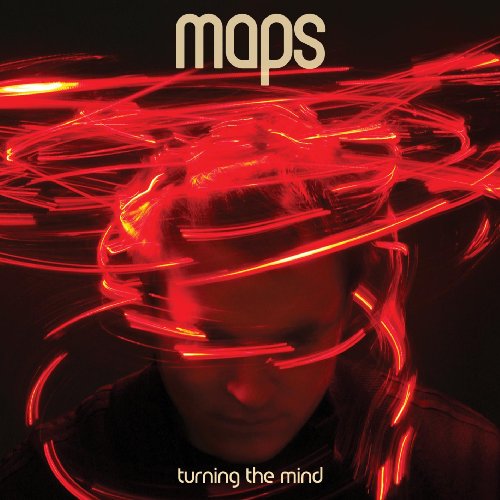
Maps
Turning the Mind
Release Date: Oct 20, 2009
Genre(s): Indie, Rock
Record label: Mute
Music Critic Score
How the Music Critic Score works
Album Review: Turning the Mind by Maps
Fairly Good, Based on 7 Critics
Based on rating 9/10
Unfortunately for James Chapman, the gentleman behinds Northampton’s Maps, the best electronic singer-songwriter album of the year - nay one of the best of the decade - has already been released and it is Bromst by Dan Deacon. Even more unfortunately, Turning The Mind is can’t even approach Mr Deacon in terms of musical innovation, nor - crucially - in terms of memorable songs. Have you ever wondered what Grant Nichols from Feeder singing over a mediocre electronic backing track would sound like? Of course you haven’t, and that’s probably for the best, given how uninspiring the vast majority of this album is.
Based on rating 4/5
James Chapman, aka Maps, is yet another British laptop electro one-man band, in the mould of Calvin Harris and Theoretical Girl. He comes from Northampton, got a Mercury nomination for his 2007 debut We Can Create, and, in a great many ways, has no distinguishing features in a UK pop landscape awash with arty 80s-influenced synth revivalists. Except for one thing.
Based on rating 7/10
The sonic cathedrals on Maps' debut We Can Create suggested that James Chapman had ambition to burn, but the deeply conceptual and personal nature of his follow-up, Turning the Mind, confirms it. From its title onward, Maps' second album is inspired by the cognitive therapy method Mindfulness, which uses the acceptance of reality to turn negative thoughts into positive ones. It's also influenced, so to speak, by the effects chemicals can have on the brain to good or ill effect.
Based on rating 3/5
James Chapman, aka Maps, seems to have taken the old Spacemen 3 slogan "Taking drugs to make music to take drugs to" as a motto. The follow-up to 2007's blissful We Can Create documents the effects of stimulants on the human brain. He claims to have done "a lot of research" in this process, which may mean he spent the first album's proceeds getting wasted.
Based on rating 4.8/10
Typically, a good-but-not-great debut gets critically retrofitted as "promising," but I'm not so sure that's apt for Maps' 2007 Mercury Prize-nominated We Can Create. It was certainly an auspicious beginning for leader James Chapman: I could go on trying to nail down what his electronically composed, beat-minded UK singer-songwriter format seeks to accomplish, but I'll just leave it at this: I've heard no less than three of his songs at a Banana Republic or someplace similar. But right away, his limitations were readily apparent, and they were not the kind that typically improve with age.
Based on rating 2/5
What is it at the moment with all this half-arsed, evangelical Christian hymn-aping synth music masquerading as dream-pop or screen-gaze? If I wanted to go to church I would do. In full corpse paint armed with a bucket full of petrol, a box of matches and [b]Mayhem[/b] on my iPod. This arpeggiated, over-produced, glossy, easy listening music goes so far in the direction of being unchallenging it actually becomes aggressively offensive.Such is the sugary onslaught of sparkling and synthesized major key pap, listening to it is like being beaten to death by a room full of wrinkled Women’s Institute ladies armed with Battenburg cakes.
Opinion: Fairly Good
Built to Spill Doug Martsch, Built to Spill’s songwriter, guitarist and singer, turned 40 this year, and his band’s seventh studio album, “There Is No Enemy” (Warner Brothers), hunkers down as he ponders surviving over the long haul. Most of the songs trudge along, methodical and steadfast, and even the upbeat ones are all grown up, like “Good Ol’ Boredom,” which proclaims relief that life now is “not that exciting after all we’ve been through.” Maturity apparently means that Mr. Martsch has accepted that Built to Spill will never escape its resemblances to Neil Young, Hüsker Dü, the Pixies and other rock bands with high-voiced singers and distortion pedals.

